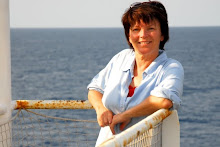The three-day Anaesthesiology and Midwifery Conference in Freetown, Sierra Leone, was held at the Princess Christian Maternity Hospital, beginning March 14, 2011. The conference was founded and hosted by Dr. Keith Thomson (MB BS, DRCOG, FRCA Consultant Obstetric Anaesthetist). This event attracted a total of 107 local participants and offered refresher medical training for common anaesthesiology and midwifery practices.
Conference facilitators consisted of a group of British medical staff comprised of anaesthetists, pediatricians, obstetricians and midwives. The midwifery team (Louise Emmett, Rhiannon Griddle, Harriet Ivey and Ruth Morris) from the United Kingdom’s Basingstoke & North Hampshire Hospitals Foundation Trust (BNHHFT) were joined by Dr. Shona Johnston, a pediatrician working with VSO (Voluntary Services Abroad) and Dr. Jenneh Kpakiwa, a second-year obstetric trainee in Bremen, Germany.
The conference was funded by The Association of Anaesthetists of Great Britain and Ireland, The Shalimar Trust, and The Squirrels Trust. Local arrangements were made by Dr. Michael Koroma and Sister Florence Bull. Mercy Ships supported the event by providing accommodation and transport for the conference team.
Dr. Matthew Walters and Matron Louise Emmett, organizers of the conference content, opted for a practical approach – short introductory slideshow lectures from the UK doctors, followed by a series of role-playing workshops. This format developed understanding and knowledge of the best medical practices to follow in different medical scenarios, enabling the delegates to implement the procedures in their workplaces.
Participants also enjoyed fun motivational exercises to aid learning, such as an essay competition to write a job description for an Anaesthetist Nurse. The valuable prize was $20 (more than a respectable week’s wages in Sierra Leone).
Contrary to conferences organized in western countries where attendees pay a fee to attend, the reverse is true in Africa. Attendees are paid to visit the conference. For this event each attendee was offered $20 to cover expenses and to provide an incentive for participation.
Dr. Keith Thomson’s longstanding interest in Africa, including 20 years of involvement with Mercy Ships and various other conferences, was the inspiration for this event. He investigated the optimal format for this initiative through many years of lecturing at conferences across Europe. The first conferences he attended as a guest lecturer on anaesthesia were in Eastern Europe in 1996. In 1998 he hosted his first midwifery-themed conference in Lithuania. This led to a childbirth conference in The Baltics in 2006, closely followed by a midwifery event in Uganda, Africa, in 2008. Now he has combined anaesthesia and midwifery – a unique combination – as a joint topic in Freetown, Africa.
This fundamentally ground-breaking initiative by Dr. Keith Thompson recognized the commonality of patients who were generally not being prepped sufficiently or who evidenced symptoms which indicated a high risk for anaesthetic to be administered – especially when a caesarean section was considered.
Statistics reflect the alarming truth that there are minimal facilities available for childbirth in Sierra Leone. One in eight mothers die during childbirth. Unfortunately, detailed mortality statistics are not collated, so the situation may be significantly graver than the general statistics indicate.
To date, there are only three qualified anaesthesiologists for five million people. Therefore, emergency caesarean section procedures are a rare option. The sobering statistics also indicate challenging circumstances for midwives in Sierra Leone.
On many occasions when there are complications during labor, the midwife is guided by a doctor’s instructions on the phone. Generally, the communication is poor between the medical staff, and the communication to the patient is aptly described by Dr. Keith Thomson as “emotionally blunt.” In most cases, the medical care is a humiliating experience for mothers who are already in an emotional and vulnerable state during labor. This is clearly evident in reports of patients being laid on the operating table in a crucifixion position and stark naked.
The conference was designed with these issues in mind and focused on optimizing treatment – using the equipment, medical staff and facilities commonly available in Sierra Leone. Many lives will be saved if this training is implemented in the field.
In the midwifery workshops, the basic principles of how to deal with infection and hemorrhage were the main topics for role-playing and group discussions. The highlight was a demonstration of teamwork during the management of obstetric hemorrhage, including airway management and fluid and drug calculations. There was detailed explanation about identifying the source of blood loss leading to the symptoms for various types of critical conditions. Overall, the conference encouraged planning ahead – including maintaining adequate inventory of equipment and supplies – in order to be prepared if a patient’s condition declines.
Although information about best medical practices was provided, advice was also given about what to do when there are no options available to meet best-practice criteria.
The factor that raised the most concern was the poor and minimal communication between medical staff and the mothers in labor. In Sierra Leone, it is a normal occurrence for medical professionals not to speak with their patients. In referring to local medical professionals, Dr. Jenneh Kpakiwa observed, “I think they were relatively capable for the most part ... what all of them seemed to think unimportant was communication. I got the impression (in our role- playing episodes) that patients are not really informed about anything at all.”
This is a terrifying prospect for the mothers in labor. The role-playing scripts demonstrated the type, quality and timing of essential information to relay to the patient – critical training in order to save lives.
Overall, the conference offered many benefits. First, the delegates had an opportunity to network with other local medical people in their field of work and with highly experienced medical staff from the U.K. Second, the knowledge provided to enhance assessment skills and earlier diagnosis will help prevent complications during monitored childbirth. Third, this increased success will, in turn, increase confidence in implementing best-practice procedures. This is important because the delegates will likely serve as trainers for the inexperienced staff in their workplaces. This transfer of knowledge will be easier thanks to the practice in effective communication offered during the role-playing workshops.
Of course, the most important benefit of the conference training is that more lives of mothers and newborn babies will be saved.
The conference was very well-received by the local medical professionals. Dr. Shona said, “I had a great time at the conference – it was a lot of fun! I really enjoyed the two sessions that I helped with (ABC sick kids and neonatal resuscitation).”
Dr. Keith Thomson realizes that more young professional midwives are required to implement and sustain long-term training through conferences in Africa. If practicing midwives in other countries have roots or connections with Sierra Leone, there is an urgent need for them to return and set up clinics. This will provide more resources and raise the standard of medical care during childbirth.
In the meantime, Freetown embraced this valuable opportunity. Hopefully, the implementation of the knowledge from this conference, training offered by future conferences, and the desired arrival of international midwives will help improve the mortality rate of newborn babies in Sierra Leone.
Story by Claire Ross
Photos by Debra Bell
Subscribe to:
Post Comments (Atom)










































No comments:
Post a Comment
Note: Only a member of this blog may post a comment.